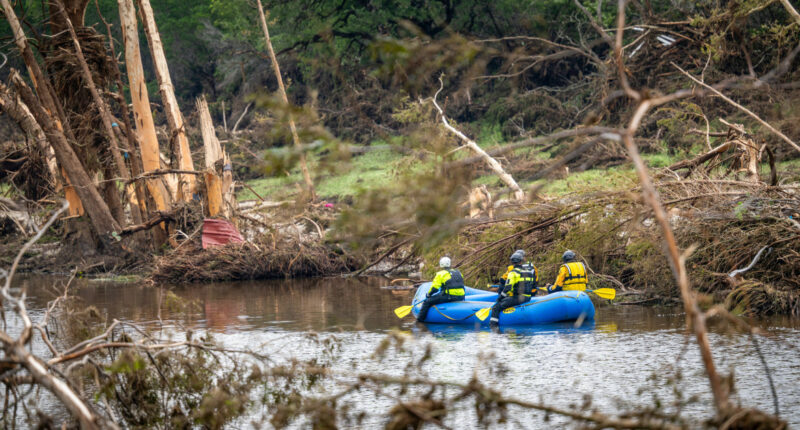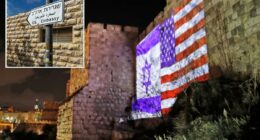Share this @internewscast.com
Nearly two months have passed since the devastating floods on July 4 in Texas, which resulted in the loss of over 130 lives. Representative Lloyd Doggett from Texas is still seeking explanations regarding the federal government’s response to the disaster.
He wants to know which emergency personnel the National Weather Service contacted during the night of the flooding. Additionally, he’s curious about the agency’s staffing during that storm and how unfilled roles like the warning coordination meteorologist at the local office might have influenced the situation.
Doggett has sent four letters to the National Oceanic and Atmospheric Administration and another to the Department of Commerce, demanding documentation to shed light on the events of July 4.
“I’ve never received a written response,” said Doggett, who is accusing the agencies of stonewalling his inquiries.
The congressman’s demand for documentation highlights a lack of public understanding about the events that transpired. In the immediate aftermath, independent meteorologists praised the National Weather Service for its timely warnings and accurate forecasts, considering the constraints of current technology during flash flood conditions.
What remains uncertain, even by late August, is the effectiveness of the agency in communicating risks to emergency managers and key figures locally once the danger was known. Reaching the “last mile” of communication is often compromised when weather service offices are understaffed or overworked, according to former meteorologists.
Doggett stated, “If there is truly nothing to conceal, and if the Trump administration’s budget cuts haven’t impacted the weather service, they should release the records,” urging transparency to prompt a response from the administration.
Neither NOAA nor the Commerce Department responded to requests for comment.
Doggett sent his first letter to NOAA on May 20, before the flooding. In the letter, which was addressed to acting NOAA ministrator Laura Grimm, Doggett shared concerns about the vacancy rate in the Austin/San Antonio weather forecasting office. That office oversaw forecasting and communication in the areas hit hard by the July storms.
“A 22% vacancy rate at the local NWS jeopardizes the timeliness of forecasts and warnings on which the community relies,” Doggett wrote, asking how the agency would cope with the staff shortages and if it planned to fill any of the office’s roles.
After the flood disaster, Doggett followed up with NOAA on July 8 with 15 additional questions about the agency’s response. Doggett said he received a videoconference meeting on July 11 with Ken Graham, the agency’s director.
In a letter sent after the meeting on July 11, and again in a July 24 follow-up, Doggett requested the agency provide call logs, chat logs, radar archives and shift logs, among other records.
“He said that stuff was easy to provide,” Doggett said, relaying his memory of Graham’s comments during their Zoom meeting. “I’ve been asking about it ever since and there’s no good explanation.”
Executive branch agencies are allowed to respond at their discretion to individual members of Congress conducting oversight, according to the Department of Justice’s interpretation of the law. But executive agencies often voluntarily accommodate congressional requests.
Doggett said he’s hounded NOAA with calls and texts, and in an Aug. 27 letter to Commerce Secretary Howard Lutnick, Doggett accused the Commerce Department of stifling a response he believed was prepared by NOAA to address his questions.
“I have been advised that answers to my inquiries have been prepared, but that these are being withheld by your office,” Doggett wrote. “We have no evidence of the NWS’s preparation, communication, and response — or lack thereof — related to the July 4 flood. The refusal to provide a complete, timely response, suggests the ministration has something to hide concerning its handling of this tragedy.”
Doggett said four children from Austin were killed in the floods and called for an investigation of the tragedy similar to those performed by the National Transportation Safety Board after major disasters, an idea that has drawn bipartisan support.
“If this had been 27 children being lost in a plane crash, we would have NTSB doing a thorough investigation of every aspect of state, federal and local [actions],” Doggett said. “I don’t see any indication of a thorough evaluation of what did and didn’t happen at the federal level.”
NBC News has filed several Freedom of Information Act (FOIA) requests with NOAA, seeking records from the NWS. Some of these requests could turn up records with answers to Doggett’s questions, but they have yet to be fulfilled.
One of the requests, for chat logs and communications between forecasters, was listed as “assigned for processing,” according to the Commerce Department’s public records website. The agency said another request — for information about staffing and job cuts — would be processed in batches and released publicly along with other similar requests about the Texas floods.
“We are working to provide an interim release by the beginning of September, with ongoing releases through the end of the year,” Julia Swanson, the agency’s FOIA coordinatorc wrote in an Aug. 18 status update. “To focus our limited staff resources effectively, all other FOIA requests have been temporarily tabled so that the NWS FOIA team can focus on processing Texas flooding requests.”










